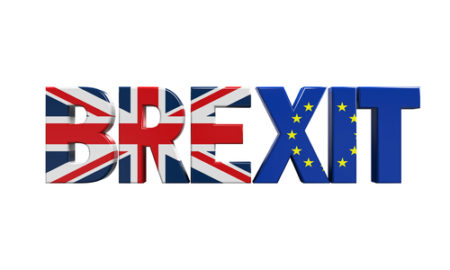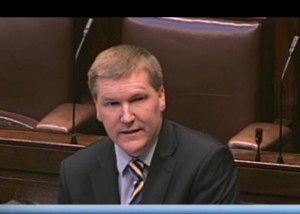17 August 2017
By Bryan T. Smyth
bryan@TheCork.ie

Govt plans currently based on FX rate 87p to €1 until 2021
The Government needs to put plans in place now to deal with the prospect of a prolonged weak sterling currency vis-à-vis the euro given the extremely serious consequences it presents for Irish exports to the UK and inbound tourism from the UK, according to Fianna Fáil Spokesperson on Finance Michael McGrath.

Michael McGrath TD
Deputy McGrath was commenting as the euro – sterling exchange stood at €1 to 91p sterling with some analysts predicting the two currencies could reach parity in the months ahead.
“The weakening of the pound and the strengthening of the euro has direct consequences for the Irish economy. Compared to the exchange rate when the UK voted to leave the EU in June 2016, the stark reality is that Irish exports to the UK are now 18% more expensive. There are now many predictions that this situation will get much worse with both Morgan Stanley and HSBC forecasting parity between the currencies in a matter of months.
“On top of the deep uncertainty about the post-Brexit trading relationship between Ireland and the UK, it is inevitable that the loss of competitiveness for Irish exporters to the UK will negatively affect exports and put a significant number of jobs in certain sectors at risk.
“In addition, we have already seen a 6.4% drop in the number of UK tourists to Ireland in the past year, and a further fall will become more likely as sterling drops further against the euro.
“Ireland’s macro-economic forecasts are currently based on certain technical assumptions as set out in the Stability Programme Update published last April. Among these is an assumption that €1 will be worth 87p sterling from 2017 to 2021. This assumption now seems to be well wide of the mark and this will impact on the overall projections for the economy.
“The Stability Programme Update also projected a 5.1% growth in exports for 2018. “With the exchange range significantly worse than anticipated, the validity of this projection is also open to question.
“Many commentators are suggesting that British consumption has been driven by credit and the fear is that when this credit runs out and the British consumer, faced with more expensive goods and services, will begin to cut back. This will be detrimental to Irish business.
“In Budget 2017, a mere €3 million Brexit package was announced for IDA Ireland and Enterprise Ireland. This is nowhere near sufficient. Budget 2018 needs to set out a number of measures to help insulate firms from the effects of this exchange rate trend. For example, the Agriculture Cash flow Loan Support Scheme will have to be re-opened and expanded to other sectors.
“In addition, greater resources will have to be provided to assist firms diversify the export markets and to attract more visitors from outside the UK. Key Brexit roles need to be filled urgently in vital institutions such as the Central Bank, IDA Ireland and Enterprise Ireland as we seek to manage the fallout from Brexit which is impacting on firms today,” concluded McGrath.

